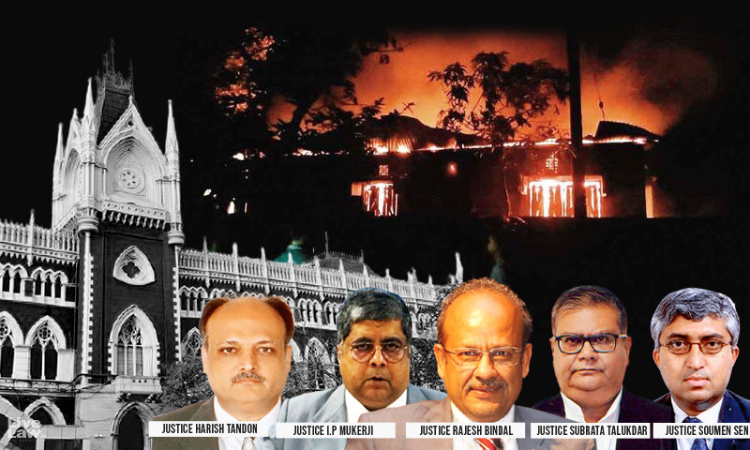West Bengal Post Poll Violence- Calcutta High Court Reserves Judgment
Aaratrika Bhaumik
3 Aug 2021 5:46 PM IST

Next Story
3 Aug 2021 5:46 PM IST
Calcutta High Court on Tuesday reserved orders on a batch of petitions pertaining to the alleged post-poll violence in the State of West Bengal. A 5 Judge Bench comprising Acting Chief Justice Rajesh Bindal and Justices I.P Mukerji, Harish Tandon, Soumen Sen and Subrata Talukdar heard concluding arguments from the concerned parties on Tuesday. The West Bengal government made...
